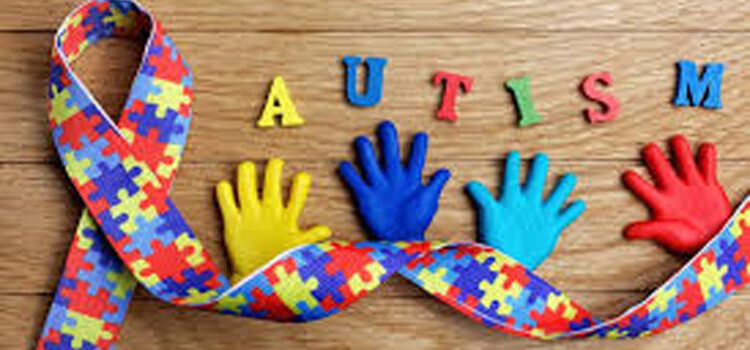
Maria Barron, Social Worker, is a mother of an autistic child who is currently 3 years of age. Her son was diagnosed with autism right before turning 2.
The first sign that Barron noticed was a regression. She noticed that he went from saying ‘mama’ and ‘dadda’ to saying nothing, and he also stopped responding to his nicknames.
They reached out to his pediatrician, and the pediatrician said to stick to one name, but there was no improvement. Therefore, they decided to do a diagnosis.
The night before Barron went for a diagnosis for her son, her dad passed away. It was hard for her to go get her son diagnosed since her dad had just passed away. She ended up going and her son was diagnosed with autism.
“It was a sense of relief just because I knew something was different about him, even while I was pregnant with him,” said Barron.
Christain Palma, Assistant Clinical Supervisor, recommends parents take their child to a pediatrician for a diagnosis as early as possible if parents see signs of autism in their child.
“Ask your doctor if you have any concerns, and it doesn’t matter the age your child is. Even just ask questions about it because a lot of parents don’t know what autism is and a lot of kids do go on undiagnosed so it is always important to go even if you have a small concern. There are a lot of parents that don’t like to believe that their kid might have autism and it is scary to think about that, but it is better to get help now than miss all those years of help,” said Palma.
Palma has been working with children with disabilities for over 6 years. He states that children get diagnosed until 3 but you can get free help before 3.
Also, he explains that there are different resources available to children with autism such as early start which focuses on academics, Adaptive Behavior Treatment (ABT) which focuses on behavior, and Adaptive Behavior Analysis (ABA) which focuses on autism.
Barron states that reaching out for help opened the doors for her such as ABA and getting referred to Kern Regional helped her out.
“He qualified for special day class through a preschool program so now he is attending preschool, another thing that I didn’t know is that he didn’t have to wait until the start of a school year, so once a child turns 3 and they still have the diagnose for autism, they can start school at any time,” said Barron.
Barron explains that the big red flag was her son not responding to his name and hand flapping. As a social worker, she has seen hand flapping as a sign of autism. As a parent, it is a different experience having an autistic child compared to helping parents with autistic children.
Palma also explains that some of the common signs of autism are hand-flapping, no-eye contact, non-verbal behavior, or not interacting and playing with toys.
“The ones I see most commonly are shying away from social-ness not wanting to be with anyone just wanting to be alone, failure to respond to their name, repetitive movement such as hand flapping, it could be lining up cars instead of actually playing with them, spinning the wheel of a toy car for a long time,” said Palma.
The first resource that parents receive is parent training to teach them more about what autism is such as different types of behaviors in autistic children and how to deal with behaviors.
Barron looks forward to starting a community with parents of autistic/special needs children. She is really big on community and she is still learning resources.
“I would love to learn more and I would love to connect with parents of color who have an autistic child and who have any types of special needs children just because I feel I could relate more to them,” said Barron.
Barron explains that it is difficult for people of color to reach out for help because many are first-generation. A community of parents of color who have children diagnosed with autism can support each other and share helpful resources with the community.
“It’s really empowering,” said Barron. “I just feel like parents, if there is any suspicion out there take it, do what you got to do for your child, and love them for who they are. Be that advocate for them.”